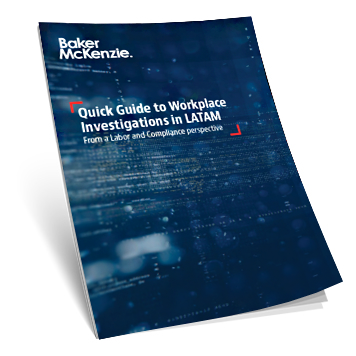Why talk about this today?
Mainly during the pandemic, the use of technological resources for performing a job has significantly grown. As a result, the access to such resources in the context of internal investigations has become almost a must. This triggers relevant concerns from a data privacy (e.g. whether the access to devices is permitted and to what extent) and a labor perspective (e.g. which are the limits of the employers power of supervision).
What are the risks?
LATAM jurisdictions have no specific labor regulations on internal investigations. On the other hand, privacy rules are very restrictive. This scenario may give room to uncertainty as to how conduct an internal investigation. LATAM authorities (and general employment laws) are very protective when it comes to the protection of employees’ rights and the protection of data subjects rights. In that sense, it is of the outmost importance to always have the support of local lawyers that can guarantee that the investigation is being done in accordance with both legal framework and best practices.
Why is this a hot topic in Latin America?
Increasingly the authorities are starting to give credit to compliance programs and, as a consequence, to internal investigations as a suitable mechanism for an early detection and prevention of infringements. It is important to have a robust internal investigation systems inside the company so that, in the event of an infringement, it can serve to seek for a more lenient decision from authorities.
As a way of example, the Peruvian Competition Authority (INDECOPI, by its Spanish acronym) has enacted guidelines for the implementation of compliance program, which refers to the importance of whistleblowers hotlines (and consequently, of internal investigations). From a labor perspective, reports must be as accurate and detailed as possible, so that they can be later useful in case of a dispute.
This is a quick guide to workplace investigations in Latin America that covers both the labor and compliance perspectives throughout seven jurisdictions: Argentina, Chile, Colombia, Mexico, Peru, Venezuela, and through a strategic cooperation agreement with Trench Rossi Watanabe in Brazil*















